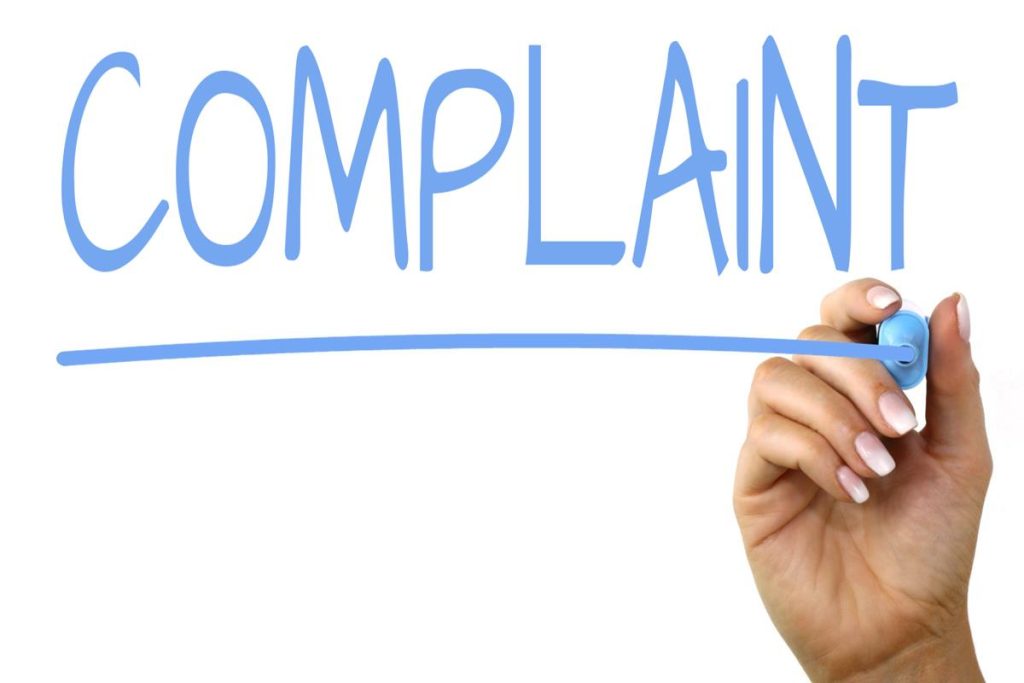Complaints Policy
Definition of a complaint
A complaint or concern is an expression of dissatisfaction about an act, omission or decision of NHS England, either verbal or written, and whether justified or not, which requires a response.
There is no difference between a “formal” and an “informal” complaint. Both are expressions of dissatisfaction.

Responsible Persons
At Tavyside Health Centre, the responsible person is Jonathan Coe (Practice Manager) and Dr Harriet Doyle (Senior Partner). They are responsible for ensuring compliance with the complaints regulations and making sure action is taken as a result of the complaint.
Complaints Manager
At Tavyside Health Centre, the complaints manager is Jonathan Coe, Practice Manager. They are responsible for managing all complaints procedures and must be readily identifiable to service users. The responsible person and complaints manager can be the same person.
Timescale
The time constraint on bringing a complaint is 12 months from the occurrence giving rise to the complaint or 12 months from the time that the complainant becomes aware of the matter about which they wish to complain.
If, however, there are good reasons for complaints not being made within the timescale detailed above, consideration may be afforded to investigating the complaint if it is still feasible to investigate the complaint effectively and fairly. Should any doubt arise, further guidance should be sought from NHS England by the Practice Manager.
Responding to a complaint
The complainant has a right to be regularly updated regarding the progress of their complaint. The complaints manager at Tavyside Health Centre will provide an initial response to acknowledge any complaint within three working days after the complaint is received. It should be noted that three working days is the maximum permitted under the NHS E Complaints Policy.
The NHS E policy (2017) states that the complainant can expect that:
- They will be kept up to date with the progress of their complaint
- If a case has passed the 40 working day target (or the timescale agreed with the complainant if different), thereafter they (and their advocate if relevant) should receive an update every 10 working days after the target date has been surpassed. This could be by telephone, email or letter but the format should be agreed with the complainant
- They can expect to receive a quality response with assurance that action has been taken to prevent a recurrence
- They will be informed of any learning
The MDU advises that, in addition to regular updates, a response or decision should be made within six months. If it extends beyond this time then the complainant must be advised.
The complaints manager will advise the complaints procedure to the complainant or their representative. In many cases, a prompt response and, if the complaint is upheld, an explanation and an apology will suffice and will prevent the complaint from escalating (an apology does not constitute an admission of organisational weakness).
Who can make a complaint?
A complaint may be made by the person who is affected by the action or it may be made by a person acting on behalf of a patient in any case where that person:
- Is a child (an individual who has not attained the age of 18)
In the case of a child, this organisation must be satisfied that there are reasonable grounds for the complaint being made by a representative of the child and furthermore that the representative is making the complaint in the best interests of the child.
- Has died
In the case of a person who has died, the complainant must be the personal representative of the deceased. This organisation will require to be satisfied that the complainant is the personal representative.
Where appropriate we may request evidence to substantiate the complainant’s claim to have a right to the information.
- Has physical or mental incapacity
In the case of a person who is unable by reason of physical capacity, or lacks capacity within the meaning of the Mental Capacity Act 2005, to make the complaint themselves, this organisation needs to be satisfied that the complaint is being made in the best interests of the person on whose behalf the complaint is made.
- Has given consent to a third party acting on their behalf
In the case of a third party pursuing a complaint on behalf of the person affected we will request the following information:
- Name and address of the person making the complaint
- Name and either date of birth or address of the affected person
- Contact details of the affected person so that we can contact them for confirmation that they consent to the third party acting on their behalf
Should the complaints manager be of the opinion that a representative does or did not have sufficient interest in the person’s welfare, or is not acting in their best interests, they will discuss the matter with either the defence union or NHS England area complaints team to confirm prior to notifying the complainant in writing of any decision.
The Complaints Process
Talk to us
Every patient has the right to make a complaint about the treatment or care they have received at Tavyside Health Centre.
We understand that we may not always get everything right and, by telling us about the problem you have encountered, we will be able to improve our services and patient experience.
Most complaints can be resolved at a local level. Please speak to a member of staff if you have a complaint; our staff are trained to handle complaints. Alternatively, ask to speak to the complaint’s manager, Mr Jonathan Coe, Practice Manager.
Ways to complain
Patients can opt to complain either verbally, in writing or by clicking here (coming soon).
Further action
If you are dissatisfied with the outcome of your complaint from either NHS England or this organisation, then you can escalate your complaint to:
Parliamentary Health Service
Ombudsman (PHSO)
Millbank Tower
Millbank
London
SW1P 4QP
Tel: 0345 015 4033
